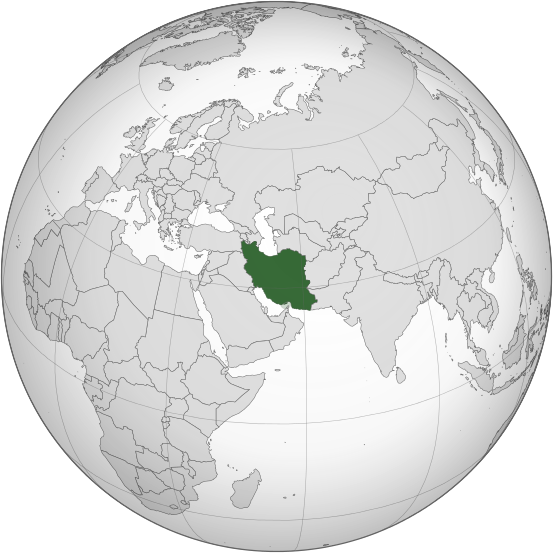
The Department of Justice announced that Behzad Pourghannad was sentenced yesterday to 46 months in prison for participating in a conspiracy to export carbon fiber from the United States to Iran between 2008 and 2013. Pourghannad pleaded guilty on Aug. 29, 2019,before United States Magistrate Judge Paul E. Davison. United States District Judge Vincent L. Briccetti imposed yesterday’s sentence.
“Pourghannad falsified shipment documents and used front companies to export carbon fiber to Iran in violation of U.S. sanctions,” said Assistant Attorney of National Security John C. Demers. “Carbon fiber is used by the Iranian Regime to further its nuclear, military, and aerospace programs. We continue to thwart the efforts of the Iranian regime to evade our sanctions and work steadfastly with our international partners to investigate, prosecute and bring sanctions violators to justice.”
“Behzad Pourghannad conspired to circumvent U.S. export controls on carbon fiber, a substance with numerous military and aerospace applications,” said U.S. Attorney Geoffrey Berman for the Southern District of New York. “The significant sentence Pourghannad received should send a message that such violations, which threaten our national security, will incur stiff penalties.”
According to the Indictment and other documents filed in the case, including statements made during the plea and sentencing proceedings:
Between 2008 and July 2013, Pourghannad and his two co-defendants, Ali Reza Shokri and Farzin Faridmanesh, lived and worked in Iran. During that period, they worked together to obtain carbon fiber from the United States and surreptitiously export it to Iran via third countries in violation of United States sanctions. In particular, Shokri worked to procure many tons of carbon fiber from the United States; Pourghannad agreed to serve as the financial guarantor for large carbon fiber transactions; and Faridmanesh agreed to serve as the trans-shipper. Carbon fiber has a wide variety of uses, including in missiles, aerospace engineering, and gas centrifuges that enrich uranium.
In or about late 2007 and early 2008, Shokri and a Turkey-based co-conspirator (CC-2) successfully arranged for the illegal export and transshipment of carbon fiber from the United States to an Iranian company Shokri operated (Iranian Company-1). Specifically, CC-2 contacted a United States supplier of carbon fiber, who in turn enlisted a third individual (Individual-1) for assistance with the transaction. Through Individual-1, CC-2 purchased carbon fiber from the United States supplier and arranged for the shipment of the carbon fiber from the United States, through Europe and Dubai, United Arab Emirates, to Iranian Company-1 in Iran.
In or about May 2009, Pourghannad and Shokri attempted to arrange another illegal purchase and transshipment of carbon fiber from the United States to Iran. Specifically, Individual-1 returned a signed contract to Pourghannad for Shokri’s purchase of a large quantity of carbon fiber. Individual-1 then purchased the carbon fiber from a United States supplier and arranged for the carbon fiber to be exported from the United States to a third country (Country-1), en route to Iran. Country-1 authorities, however, interdicted the carbon fiber shipment before it could be trans-shipped to Iran.
In or about 2013, Pourghannad, Shokri, and Faridmanesh again attempted to illegally procure and export carbon fiber from the United States to Iran. In the 2013 transaction, Shokri and Pourghannad negotiated with Individual-1 for the purchase and trans-shipment to Iran of more than five tons of carbon fiber. Faridmanesh and Pourghannad further agreed with Individual-1 that the carbon fiber would be trans-shipped from the United States to Iran through Tbilisi, Georgia, with Faridmanesh to serve as the trans-shipper. Faridmanesh specifically instructed Individual-1 to change the shipping labels on the carbon fiber to reference “acrylic” or “polyester,” rather than “carbon fiber.” Pourghannad provided Individual-1 with the bank guarantee that was to serve as surety for a portion of the carbon fiber. In or about June 2013, Individual-1 informed Pourghannad, Shokri, and Faridmanesh that the carbon fiber would soon be shipped from Manhattan and that Individual-1 would replace the carbon fiber labels with shipping labels referencing “acrylic” to evade U.S. export controls.
No one involved in these transactions obtained permission from the U.S. Department of Treasury, Office of Foreign Assets Control to export the carbon fiber from the United States.
Mr. Berman praised the investigative work of the FBI and the U.S. Department of Commerce, and thanked the U.S. Department of Justice’s National Security Division, Criminal Division’s Office of International Affairs, the U.S. Marshals Service, and U.S. Immigration and Customs Enforcement’s Homeland Security Investigations for their assistance.
This case is being handled by the Office’s Terrorism and International Narcotics Unit, with assistance from the Counterintelligence and Export Control Section of the National Security Division. Assistant U.S. Attorney Gillian Grossman and Trial Attorney Matthew McKenzie are in charge of the prosecution.
This is a press release from the Us Department of Justice.


Bulloch Public Safety
03/02/2026 Booking Report for Bulloch County

Chattooga Local News
Most Recent Chattooga County Food Service Inspections

Bulloch Public Safety
02/09/2026 Booking Report for Bulloch County

Bulloch Public Safety
02/16/2026 Booking Report for Bulloch County

Bulloch Public Safety
02/20/2026 Booking Report for Bulloch County

Bulloch Public Safety
02/17/2026 Booking Report for Bulloch County

Bulloch Public Safety
02/02/2026 Booking Report for Bulloch County







